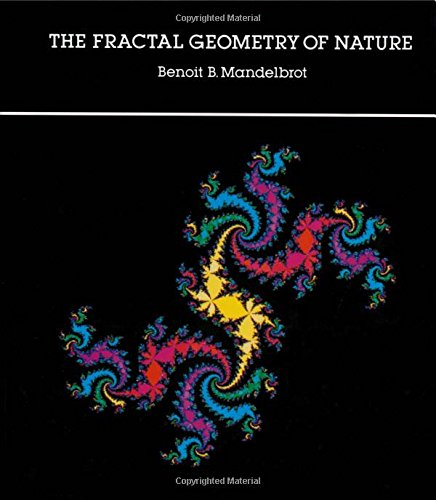Top products from r/CasualMath
We found 22 product mentions on r/CasualMath. We ranked the 21 resulting products by number of redditors who mentioned them. Here are the top 20.
1. Mathematical Miniatures (Anneli Lax New Mathematical Library)
Sentiment score: 0
Number of reviews: 1
 Show Reddit reviews
Show Reddit reviews3. Oliver Byrne: The First Six Books of the Elements of Euclid (VARIA)
Sentiment score: 1
Number of reviews: 1
 Show Reddit reviews
Show Reddit reviews5. Applied Partial Differential Equations:: A Visual Approach
Sentiment score: 1
Number of reviews: 1
Used Book in Good Condition
 Show Reddit reviews
Show Reddit reviews7. The Manga Guide to Calculus
Sentiment score: 0
Number of reviews: 1
No Starch Press
 Show Reddit reviews
Show Reddit reviews8. A New Kind of Science
Sentiment score: 1
Number of reviews: 1
Used Book in Good Condition
 Show Reddit reviews
Show Reddit reviews9. Non-Euclidean Geometry for Babies (Math for Babies)
Sentiment score: 1
Number of reviews: 1
 Show Reddit reviews
Show Reddit reviews10. Analyzing Baseball Data with R (Chapman & Hall/CRC The R Series)
Sentiment score: 0
Number of reviews: 1
CRC Press
 Show Reddit reviews
Show Reddit reviews11. The Math Book: From Pythagoras to the 57th Dimension, 250 Milestones in the History of Mathematics (Sterling Milestones)
Sentiment score: 1
Number of reviews: 1
Sterling
 Show Reddit reviews
Show Reddit reviews12. Journey through Genius: The Great Theorems of Mathematics
Sentiment score: 2
Number of reviews: 1
 Show Reddit reviews
Show Reddit reviews13. Q.E.D.: Beauty in Mathematical Proof (Wooden Books)
Sentiment score: 1
Number of reviews: 1
 Show Reddit reviews
Show Reddit reviews14. Nonlinear Dynamics And Chaos: With Applications To Physics, Biology, Chemistry, And Engineering (Studies in Nonlinearity)
Sentiment score: 1
Number of reviews: 1
 Show Reddit reviews
Show Reddit reviews15. The Fractal Geometry of Nature
Sentiment score: 1
Number of reviews: 1
Orders are despatched from our UK warehouse next working day.
 Show Reddit reviews
Show Reddit reviews16. Georg Cantor: His Mathematics and Philosophy of the Infinite
Sentiment score: 0
Number of reviews: 1
One of the greatest revolutions in mathematics occurred when Georg Cantor (1845-1918) promulgated his theory of transfinite sets. This revolution is the subject of Joseph Dauben's important studythe most thorough yet written of the philosopher and mathematician who was once called a "corrupter of yo...
 Show Reddit reviews
Show Reddit reviews17. Baseball Hacks: Tips & Tools for Analyzing and Winning with Statistics
Sentiment score: 0
Number of reviews: 1
Used Book in Good Condition
 Show Reddit reviews
Show Reddit reviews18. Indra's Pearls: The Vision of Felix Klein
Sentiment score: 1
Number of reviews: 1
 Show Reddit reviews
Show Reddit reviews




I'm sure you'll be able to find a good topic, but keep in mind that 20–30 pages can feel a lot longer when you're writing about math than prose about history, literature, or something else. And in terms of the mere mechanics of writing a paper about math, if you aren't reasonably fluent in LaTeX, then simply typesetting formulas can be incredibly tedious. (On the other hand, learning LaTeX, especially on short-notice, can itself be tedious.)
As for content: if you haven't already read it, I'd recommend reading the book Journey Through Genius: The Great Theorems of Mathematics by William Dunham. If your paper will be due soon, you may not have time to read a 300+ page book. But if you do have enough time, this might be a good resource, both about interesting mathematical ideas and the history of the mathematicians who helped build this intellectual edifice.
Good luck on your paper!
Books on Fractal Geometry tend to have pretty pictures:
Indra's Pearls: The Vision of Felix Klein by David Mumford et al.
Beauty of Fractals by Heinz-Otto Peitgen et al
Fractal Geometry of Nature by Benoit Mandelbrot
For what it's worth New Kind of Science by Stepeh Wolfram has tons of pretty pictures, even if the content is dubious.
you might also want to checkout the Non-Euclidean Geometry for babies and other similar titles.
Oliver Byrne's illustrated edition of Euclid's elements is pretty.
For something more serious, have a look at Proofs from THE BOOK, a collection of 'beautiful' proofs, inspired by Erdős' terminology.
Strogatz - Nonlinear Dynamics and Chaos
It's more of a textbook, but very enjoyable to read
Maybe not as accessible, but very pretty: Applied Partial Differential Equations - A Visual Approach by Peter Markowich
Although I love Oliver Byrne's edition of Euclid's Elements, I have to say I find it more difficult to understand than the normal text. (I find it difficult to understand even when I reread sections of Euclid which I already understand.)
I recommend this online free edition: http://aleph0.clarku.edu/~djoyce/java/elements/elements.html
If you want to buy a copy I recommend the Green Lion Press Edition:
http://www.amazon.com/Euclids-Elements-Euclid/dp/1888009195/ref=sr_1_1?ie=UTF8&qid=1324960297&sr=8-1
Came to say this.
http://www.amazon.co.uk/Math-Sterling-Milestones-Clifford-Pickover/dp/1402788290
Hefty, beautiful, informative.
Q.E.D.: Beauty in Mathematical Proofs by Burkard Polster.
this is also nice: http://www.amazon.co.uk/Manga-Guide-Calculus-Hiroyuki-Kojima/dp/1593271948
Another interesting read: Introduction to Mathematical Thinking by Keith Devlin.
I'm curious. I'm from the US, where we say "math" not "maths" even though for the full length form we say "mathematics." "Maths" sounds plural (seemingly referring to the multiple fields within mathematics), so shouldn't your title be "Why Maths Aren't Boring"? Not that it's relevant to the overall message of your book, but I find it a bit puzzling.
It isn't letting me reply to the parent, so I'll reply here.
The OP might be interested in books related to mathematics competitions like the Olympiad or the Putnam, which often contain problems which have a 'trick' that simplifies the problem. In particular, you might be interested in the book Mathematical Miniatures.
Beat the Dealer. Thorp was a mathematician who was the first person to realize Blackjack could be beaten by counting. Great story.
You might find some answers in these books:
http://www.amazon.com/Analyzing-Baseball-Data-Chapman-Series/dp/1466570229
http://www.amazon.com/Baseball-Hacks-Analyzing-Winning-Statistics/dp/0596009429/
The second author has a website with some starter information:
http://www.oreillynet.com/pub/a/network/2004/10/27/baseball.html
http://www.amazon.com/Georg-Cantor-Joseph-Warren-Dauben/dp/0691024472